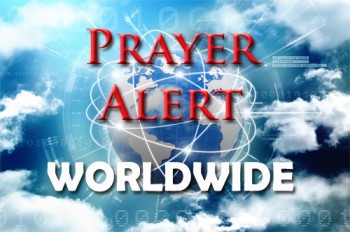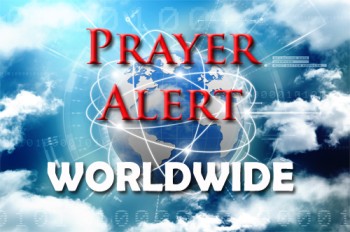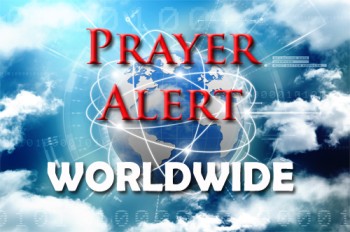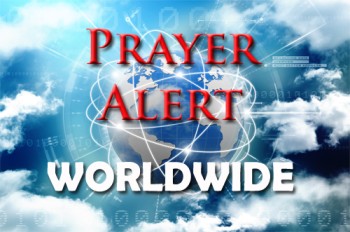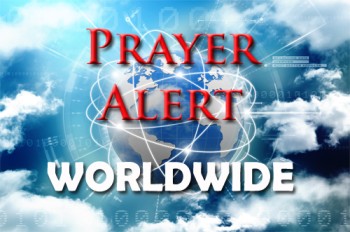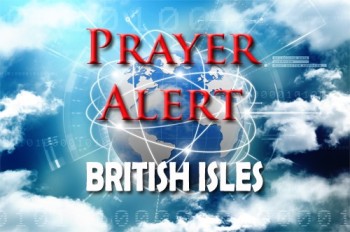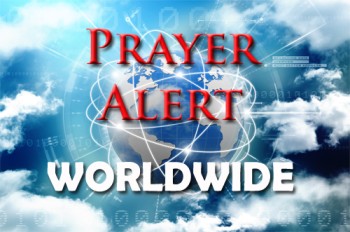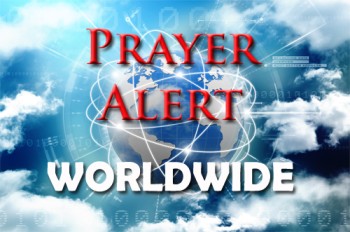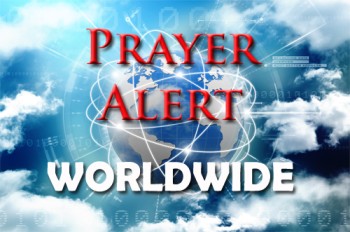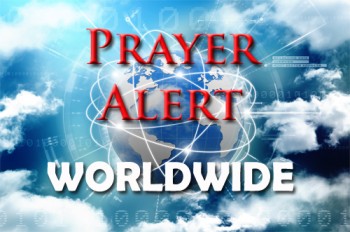Displaying items by tag: Narendra Modi
India: relationships with the USA take a downward turn
US-India relations entered a turbulent phase when Donald Trump tore into India for its continued oil imports from Russia and slow progress on trade negotiations. Formerly close to Prime Minister Narendra Modi, Trump, accusing India of funding Russia’s war in Ukraine, has vowed to raise tariffs on Indian exports to 50%. India regards its Russian energy imports as economically necessary; it has a longstanding relationship with Russia and is among the largest importers of Russian oil. Modi’s government has so far resisted Trump’s pressure, particularly over opening up US access to the heavily protected agriculture and dairy sectors. In response to Trump’s belligerent language, Modi has called on citizens to buy only Indian-made goods, leading to greater economic self-reliance. Political commentators note that it will be very difficult for Modi to give any large concessions in a trade deal, given the growing anger within India towards Trump.
India: Modi claims victory, but loses overall control
Following the national elections, Narendra Modi is set to lose his parliamentary majority. His Bharatiya Janata Party (BJP) may need to form alliances to retain power. The current poll results suggest that while the BJP will remain the largest party, it might fall short of an outright majority, securing between 230-240 seats in the 543-member Lok Sabha, the lower house of Parliament. This potential shortfall would force Modi to seek coalition partners to govern effectively - a significant shift from the 2014 and 2019 elections, where the BJP secured decisive victories. Despite his personal popularity, this result might reshape India's political landscape, making governance more complex and coalition-dependent. He will find it challenging to maintain political dominance amid increasing economic and social challenges, including high unemployment and rural distress. Some fears have been expressed about his long-term future, and the Indian stock market has tumbled in value in response.
India: world’s biggest election explained
On 19 April Indians commenced voting for their next parliament, with Narendra Modi seeking a third term. Opinion polls favour his BJP party and its allies over an opposition alliance of over two dozen parties including Congress. The election is unfolding amidst bitterness, with opposition leaders alleging an unfair playing field. The numbers are mindboggling: a staggering 969 million voters (almost one-eighth of the world’s population) are eligible to vote, electing 543 MPs. The process will run in seven phases over six weeks: results will be announced on 4 June. Election commissioner Rajiv Kumar has vowed to ‘take democracy to every corner of India’, with some polling booths in the unlikeliest of places. Uttar Pradesh, India’s most populous state, is seen as a key battleground. The outcome of this monumental electoral process will shape India's political landscape for the next five years.
India: PM accused of ‘crippling’ opposition party
Narendra Modi's government has been accused by the opposition Congress party of using the tax department to financially cripple them ahead of the upcoming elections in April and May, which Modi’s BJP party are favourites to win. Congress leader Sonia Gandhi claimed a systematic effort to starve the party of funds, stating that freezing their 2.1 billion rupee (£20 million) accounts is unprecedented and undemocratic. Her son Rahul said, ‘This is not the freezing of our bank accounts. It is the freezing of Indian democracy.’ Without access to funds, the party is unable to spend money on advertisements and publicity, paying party workers, and printing campaign materials, They have also pointed out that this action has been taken at a time when it had just been revealed that the BJP had benefited hugely from the electoral bonds scheme set up in 2018, which the supreme court declared illegal in February. The BJP and tax authorities have yet to respond.
India: two mosques demolished
The recent demolition of two mosques has accentuated religious divisions as India prepares for elections in April / May, expected to secure prime minister Narendra Modi a third term. The demolitions, in Uttarakhand and Delhi, come weeks after the inauguration of the contentious Ram Mandir temple on the site of a historic mosque torn down by Hindu fundamentalists in the 1990s. That ceremony, marking a huge shift away from modern India’s secular founding principles, was hailed by Hindu nationalists as a crowning moment in their decades-long campaign to reshape the nation. Both demolitions were supposedly because of ‘illegal encroachment’. In Uttarakhand, violent confrontations followed, claiming six lives and prompting curfews. Many scared Muslims have said they just want to leave. Analysts fear escalating religious tensions as Modi's BJP advances its populist, divisive policies ahead of the elections. Despite Modi's aspiration to portray India as a vibrant modern superpower, many Muslims feel marginalised in the world’s largest democracy.
British Asian Christians call for peace in Manipur
British Asian Christians are issuing an urgent call for peace in Manipur as the area grapples with escalating violence and persecution. They are calling on people to join a peaceful protest in London next week. They said, ‘This unified effort, driven by the desire for justice and equality, seeks to shed light on the discrimination faced by Christians in the region.’ They are calling for ‘people of faith or no faith, who have good conscience and are moved by the recent attacks to come together and call for change.’ The violent persecution of Christians, which began four months ago over land rights and jobs, has been brought to the attention of British MPs, and a meeting in Parliament to discuss the situation is scheduled for later this month. Prime minister Modi is accused of ignoring the situation and not doing enough to quell the violence, earning him a vote of no confidence.
Cambodia / India: honest media opposed
Cambodia’s prime minister Hun Sen has shut down the last few independent media outlets in the country, six months before a general election. He cancelled Voice Of Democracy‘s operating licence after they published an article which he claimed slandered his son. Amnesty International said this is slamming the door on what is left of independent media and a warning to other critical voices who still dare to ask questions about the government, the prime minister, and his family. Pray for Cambodians to have safe access to truthful news. Indian tax authorities searched BBC offices after it aired a story of prime minister Narendra Modi’s role in anti-Muslim violence when he was chief minister of the state. It was only broadcast in the UK. Modi is blocking Indians from sharing ‘the Modi question’ online, calling it hostile propaganda. A spokesman for him called the BBC ‘the most corrupt organisation in the world’.
India: Christian persecution increases
India’s government, under prime minister Narendra Modi, is increasingly adopting pro-Hindu nationalist ideologies fuelled by radical groups such as the RSS (Rashtriya Swayamsevak Sangh). Modi and the RSS are in the Persecutor of the Year annual report for their Christian oppression. 2,500 Christians in Chhattisgarh were made homeless at Christmas when radical Hindus decimated their communities. Chhattisgarh is one of eleven states with anti-conversion laws, and an escalation of violent attacks against Christians has devastated the communities with little or no government protection or recourse. On 1 January nearly 700 radicals attacked the Christian-populated Gadhbengal village, destroying homes and properties. 200 Christians escaped the mob after being alerted that rioters were heading their way. Some are gradually returning to resume their lives. Others fear more deadly attacks. An overarching concern for them all is when and where they will find their next meal.
India: Modi scolds Putin
Narendra Modi, India's prime minister, has called for the Ukraine war to end. He warned that geopolitical struggles could ‘lead to humanitarian crises’. In a thinly veiled swipe at the Russian president, he said, ‘Our era need not be one of war. Indeed, it must not be one!’ The comments echoed his previous criticism of Mr Putin in September. India has abstained from condemning Moscow’s actions in Ukraine at the UN as the government balances its ties with Russia and the West, but has shifted its stance as the war intensifies and energy and food shortages pose greater global threats. Mr Modi said the world’s greatest challenges ‘can be solved not by fighting each other, but only by acting together’. India hosts the next G20 summit, whose theme is One Earth, One Family, One Future.
India: five year plan
Five year plans are centralised and integrated national economic programmes. India launched its first one in 1951 under Jawaharlal Nehru. Although he has no ‘plan’ for the next five years, a bitterly contested election campaign appears poised to give prime minister Narendra Modi and his Hindu nationalist BJP party a resounding mandate for the next five years. For thirty years India was governed by a series of broken, temperamental coalitions. Modi’s election in 2014 broke the pattern, and this victory will exceed even the BJP’s expectations. The primary force for Christian persecution in India is Hindu nationalism, which voices the belief that India belongs to the Hindus and that people of other faiths should find somewhere else to live, work and worship. In 2018 more than 12,000 Christians were attacked, but this number is only the tip of the iceberg, researchers say, as increasing numbers of persecution acts go unreported. See
